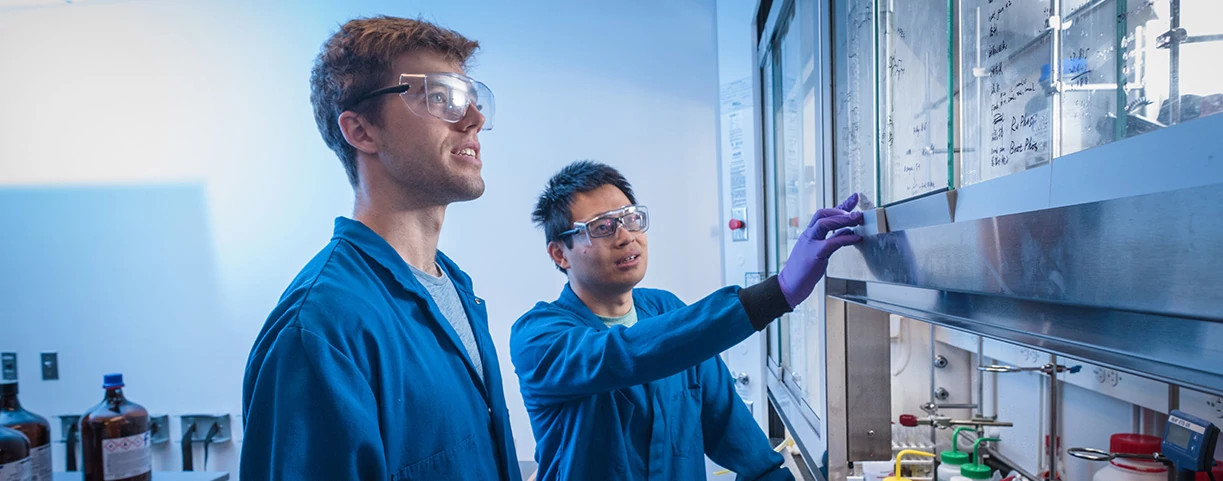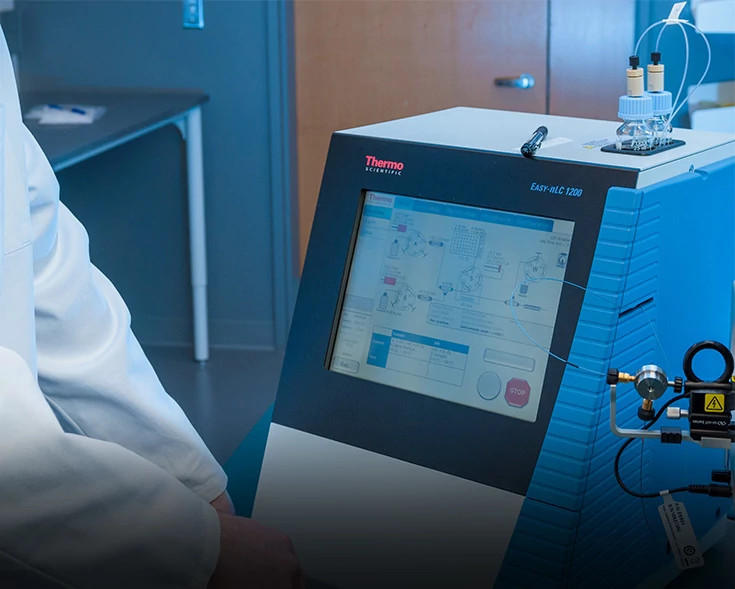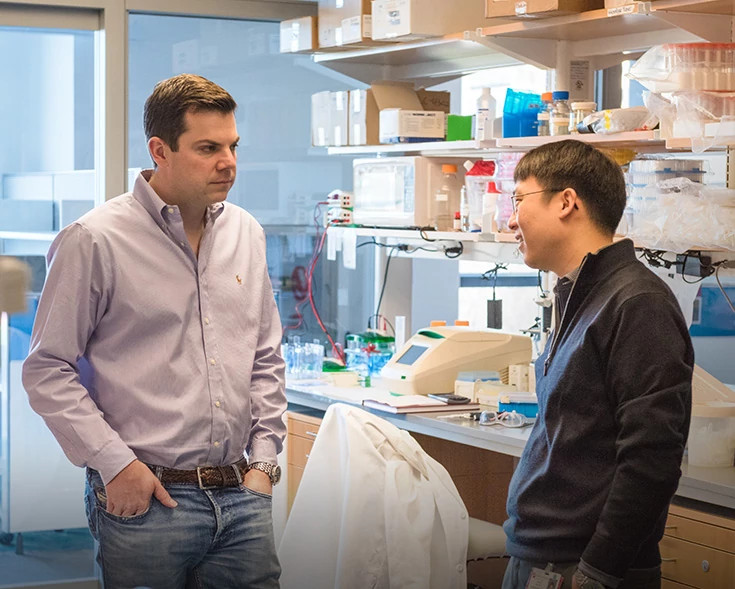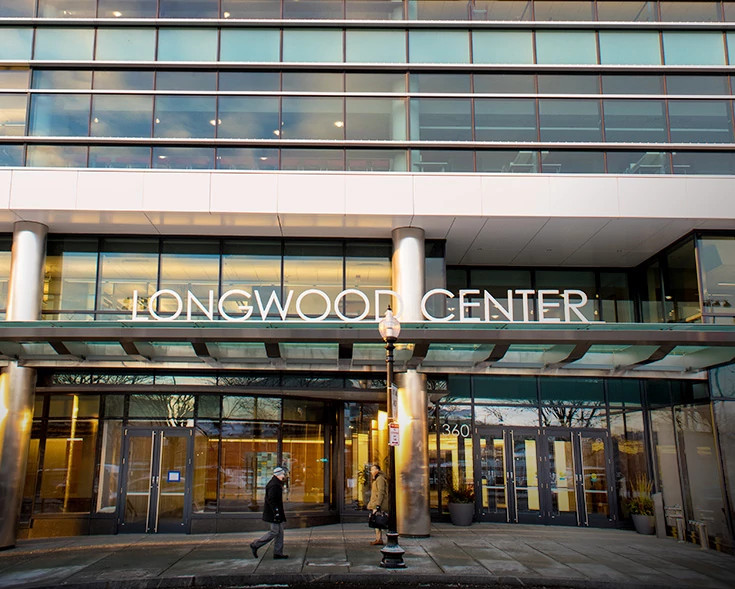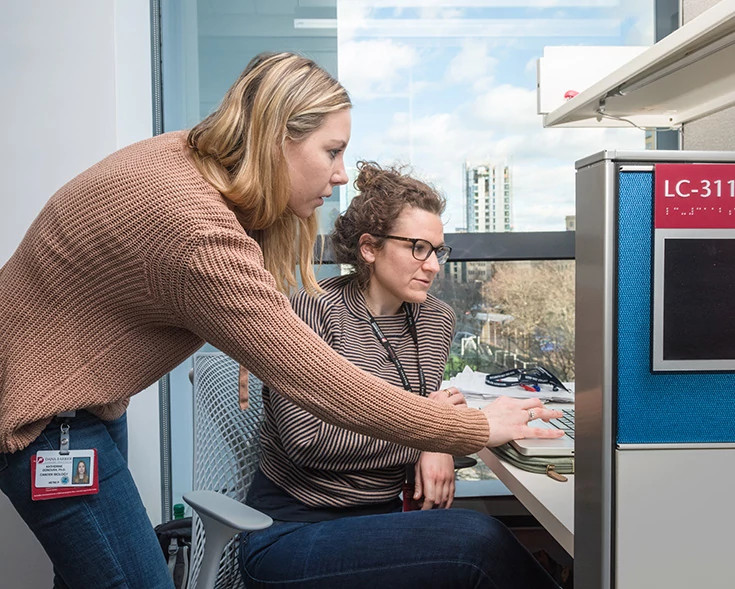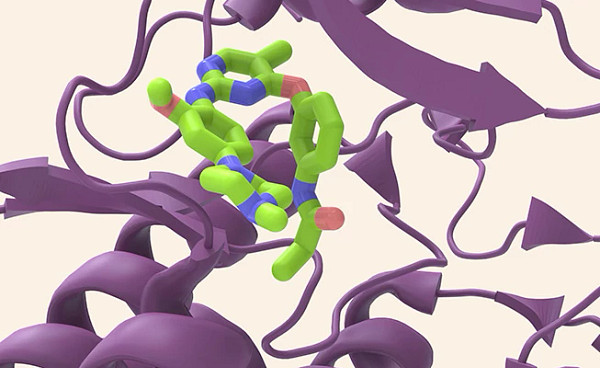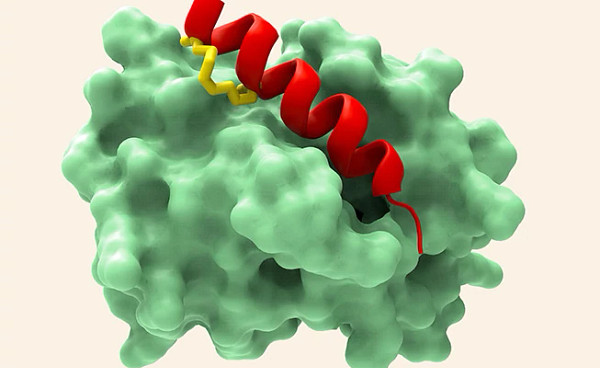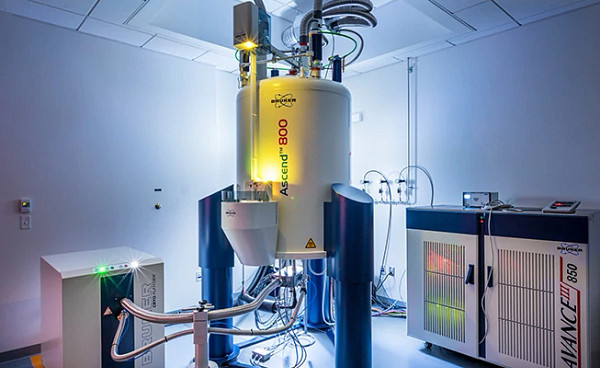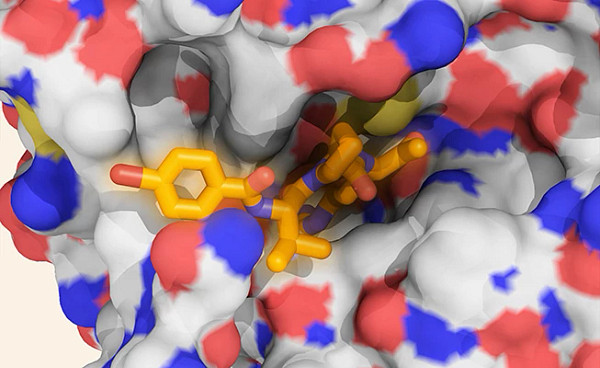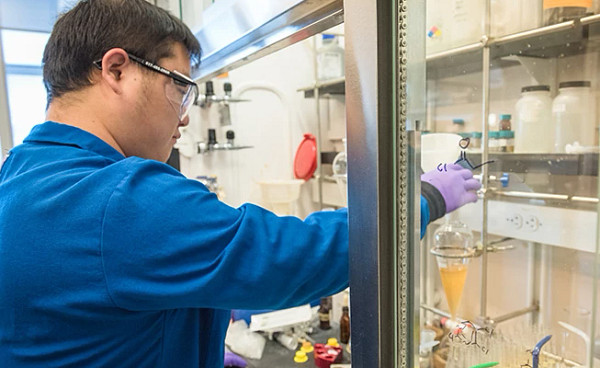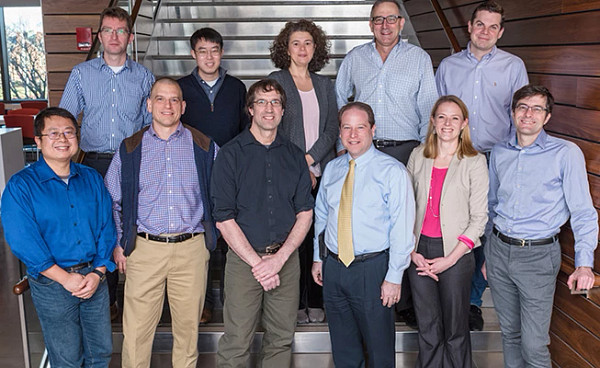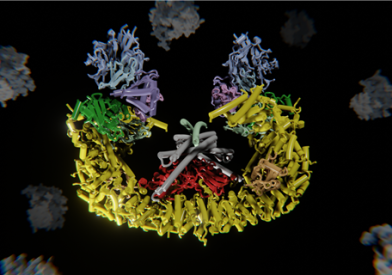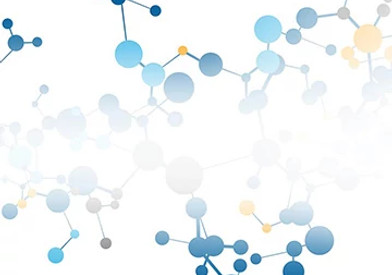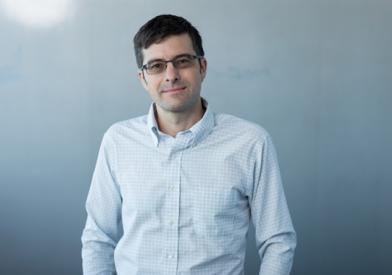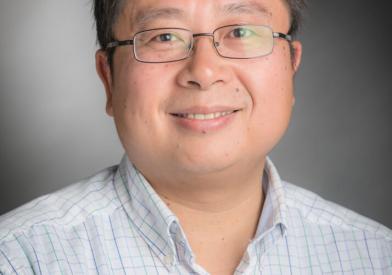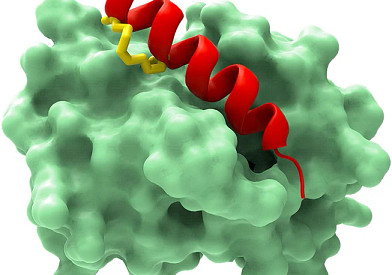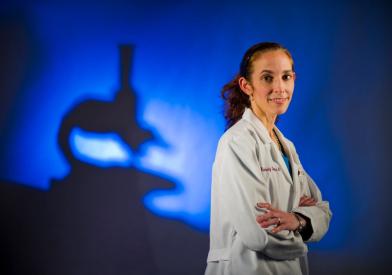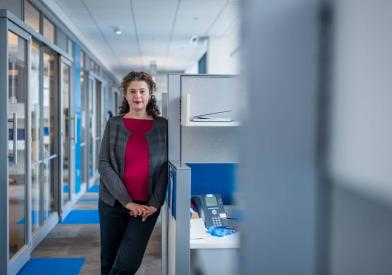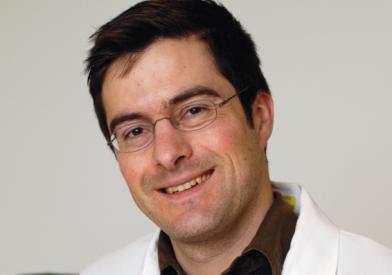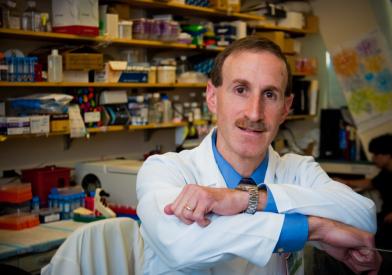Chemical biology is one of the most rapidly growing fields of investigation in the cancer field and beyond.
At Dana-Farber's Chemical Biology Program, we perform basic research in cancer chemical biology and develop new chemical probes and therapeutic strategies based on structural and mechanistic insights. One of our goals is to go after difficult drug targets through innovative chemistry. We find inspiration in both unanswered biological questions and unmet clinical needs.
The Chemical Biology Program is internationally recognized as a center of excellence in the field. Our chemical biology investigators have made important contributions to advancing targeted cancer therapy, and some of the compounds developed in the program are now benefiting patients. What makes our program an exceptional place to do science are extraordinary and energetic graduate students, postdoctoral researchers, staff scientists, and technicians, who work relentlessly to provide chemistry-inspired solutions targeting cancer, as well as infectious, neurodegenerative, and autoimmune diseases.
Our faculty members hold academic appointments at Dana-Farber's Department of Cancer Biology and Department of Pediatric Oncology, as well as at Harvard Medical School. Our trainees come from a range of Harvard Medical School graduate programs, as well as Harvard's Graduate School of Arts and Sciences.
Learn more about our mission and emphasis
Learn about career opportunities in the Chemical Biology Program
Learn about postdoctoral training opportunities in our Program
